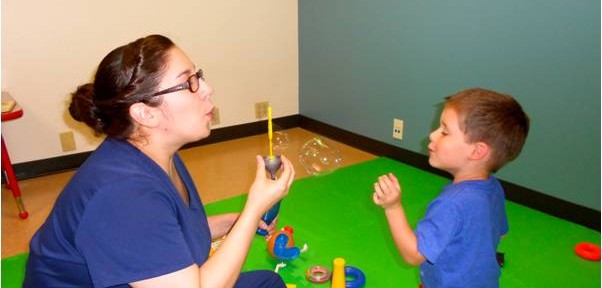Asperger Syndrome From Diagnosis to Independence Part 1: Diagnosis
The summer of 2017 Aspergers101 hosted a free informational series on Aspergers at the San Antonio Public Library. We have recorded each of these valuable sessions in video and powerpoint format so that you can have access to them at any time. Below, watch the first workshop from our Informational Summer Series on Aspergers focusing on diagnosis in childhood. First, Jennifer and Sam Allen discuss the initial steps of recognizing signs of Autism in a child and seeking a diagnosis. Next, Berenice de la Cruz, Ph.D., BCBA-D and COO of Autism Community Network, gives details on the diagnosis process and the medical terminology behind Autism and Aspergers.
The following checklist for Autism and Asperger behavioral signs comes from Jennifer and Sam’s powerpoint. This checklist is not meant to be used as a professional or standalone diagnosis, but rather as a helpful guide that can support you in your journey of diagnosis for your child.
Informal Childhood Developmental Checklist
Social Interactions
The child prefers to play alone
The child is rarely invited by others to play in the neighborhood or to participate in activities outside of school
The child’s social interactions and responses are immature, not keeping with his/her age or his/her cognitive abilities in other areas
The child has difficulty interacting in group settings
The child does not play with other children as expected: he/she may not appear interested in their games, or may not know how to join in
The child appears to be vulnerable to teasing, bullying and being taken advantage of by others
Behavioral Observations
A graduate of Abilene Christian University, Jennifer had a long career in TV Broadcasting. Upon learning her oldest son Sam had a form of Autism called Asperger’s Syndrome, she left her career and became a full-time mother to both of her sons. Jennifer elicited the participation of her family and together they produced several independent programs including a children’s animated series titled Ameriquest Kids, as well as a documentary and book titled, Coping to Excelling: Solutions for School-age Children Diagnosed with High-Functioning Autism or Aspergers Syndrome. She formed the nonprofit Asperger101 to provide on-going free resources related to ASD at Aspergers101.com and has implemented the Texas Driving with Disability Program and continues to grow the statewide initiative today. She and her husband have recently retired to their property in the Texas Hill Country.

